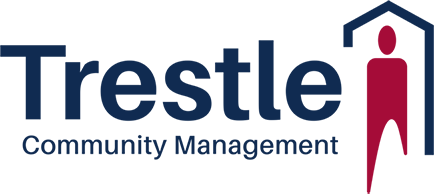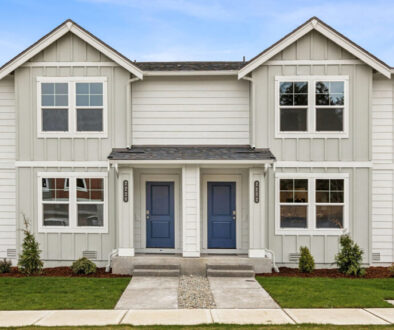How to Minimize Risk For a Self-Managed Condo Owners Association
By taking on the responsibility for community association management, condo owners associations automatically ask themselves to take on more risks.
Risk is defined as exposure or vulnerability to danger, harm, or loss. When self-managing a community, boards must protect themselves and residents from potential risks, like lawsuits, unsafe community maintenance practices, dishonest fund management, and more. So how can homeowners associations stay safe? Check out these seven tips to reduce risks in self-managed condo associations.
1. Enforce the Rules
A lax approach to rule enforcement can lead to disputes, distrust, and other harm for your community. It is important for community managers to enforce rules set out by the community association’s governing documents. When community managers don’t enforce rules, residents may think they don’t need to follow them. This attitude increases liability for the entire community and its board of directors. Enforcing the rules helps keep residents safe and happy!
2. Train Board Members Well
Self-managing community boards should put together a training program for all members and update it regularly. This helps board members identify common risks and legal issues, like community association laws in your state, condo community bylaws, and liability concerns. The more community managers know about the rules that protect their community, the less responsibility they may face if something goes wrong. If you’re not sure how to implement a good training program, an HOA management company can help!
3. Keep Lines of Communication Open
Homeowners association boards must keep community members informed with clear, regular communication. Community managers should post community updates to the community’s website and make sure emails to residents happen routinely. Conducting regularly scheduled meetings also helps keep board members accountable for community decision-making. It ensures direct contact between community board members and residents who have questions or concerns about their community. By keeping lines of communication open, condo association management can identify risks before they happen!

4. Conduct Regular Board Meetings (With an Agenda)
Regularly scheduled board of directors’ meetings are essential not only for communicating information to community residents but also for effective condominium management. Regular meetings also help keep the community informed about budgets, special assessments, concerns, and resolutions. Sticking to a meeting agenda helps community managers prepare and prioritize the topics that need the most attention throughout the year. If you’ve experienced meetings that don’t stay on task or devolved into confusion, a professional community management company can help structure meetings for residents and boards.
5. Monitor Financials and Vendor Services
A community’s fiscal health is closely tied to its financial liability risks. Growing expenses require growing income—and if your HOA doesn’t have enough money in reserve, you could be putting yourself at risk for lawsuits or expensive fines! Keep an eye on community finances by hiring an accountant or bookkeeper to monitor fees, funds, and expenses.
In addition, working with a community manager with experience monitoring budgets and reviewing monthly expense reports can be. Unmanaged vendor services also pose risks to condo board members and owners. If community associations don’t regularly check in with their contractors’ references and past performance, association boards may be less able to protect community assets.
6. Plan and Budget Well
HOA community managers should work together with the community’s board of directors to create complete and thorough action plans and budgets before passing them down to regular community members. Talking with a community manager well-versed in budgeting processes can help community boards recognize precisely how much they need for their reserves and special assessments each year—and where it has to come from!
In addition, creating a finance committee with skilled board volunteers can help keep funds managed well. For example, board members with bookkeeping or accounting experience can work with an outside accountant to track expenses and create reports.
7. Hire Condo Association Management Experts
If there are too many responsibilities on your plate or you’ve had trouble finding time for these items, hiring an HOA community manager may be your best option. Board members should focus on community planning, decision-making, and community vision to ensure their community’s success. In addition, hiring a community association manager can help condominium community boards avoid unnecessary risks for expensive lawsuits or fines!

Reduce Risks With a Condominium Management Company
The best way to minimize risk in your condo community is by being informed about the state laws that govern condos and homeowner associations, keeping your community’s bylaws up-to-date, enforcing rules, conducting regular meetings with an agenda, monitoring budgets and vendor services, planning well before taking action, and hiring a condo management expert to take these responsibilities off of your plate so you have more time for community planning and decision making. However, not all HOAs need help with all of those tasks!
Whether you prefer to self-manage everything for your community or outsource a few key aspects to the experts, Trestle Community Management can help. We offer consulting-only services, financial management, or full-management services, depending on your association’s needs. Reach out soon to learn how we can support your community in the ways that serve you best!



